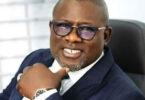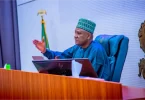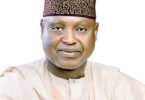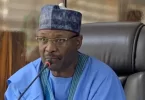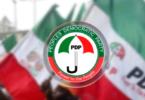In the light of the latest reconciliation effort by the Peoples Democratic Party (PDP), Abuja Bureau Chief, LEON USIGBE revisits previous attempts to restore the main opposition to its former glory.
THE Peoples Democratic Party (PDP), once a dominant political force in Nigeria, has faced a protracted crisis that has seen it lose its foothold as the ruling party. This crisis is deeply rooted in internal divisions, power struggles, and the gradual erosion of its founding principles. Efforts to address these issues through various reconciliation committees have yielded mixed results, revealing both the challenges and the potential for renewal within the party.
The PDP was initially envisioned as a mass movement akin to South Africa’s African National Congress (ANC), with the goal of representing a broad spectrum of Nigerian society. However, the party began to stray from this vision, as elements within the party sought to transform it into a personal estate, disregarding the principles of inclusivity and internal democracy.
The genesis, Ekwueme’s lamentation
The origins of the PDP’s crisis can be traced back to the early 2000s, as highlighted by the late Dr. Alex Ekwueme, a former Vice President and one of the party’s founding fathers. Ekwueme lamented the hijack of the PDP by individuals unfamiliar with its core philosophy. “The story of PDP makes me sometimes weep. When our founding fathers said the party will be in charge for 60 years or more, some thought they were just bragging. PDP was packaged to be a mass movement of all Nigerians just like the ANC of South Africa,” Ekwueme said about the promise inherent in the fledgling party. But what he saw disheartened him: “Unfortunately, some people, who did not know how the party was formed or what informed its philosophy, got involved in the party and decided to convert it to a personal estate without regard to the underpinning principles that formed it and gradually, we started to lose ground.”
Ekwueme’s reflections underscore the party’s early successes, such as its sweeping victory in the 1998 elections, where it won 28 out of 36 states and took control of the National Assembly. However, the party’s decline began when it started re-registering members in a bid to exclude those who were not aligned with certain factions. This exclusionary practice marked the beginning of the internal discord that would later escalate into a full-blown crisis. One reconciliation effort after another had followed since Ekwueme with minimal results.
Reconciliation efforts under Yar’Adua
The first major attempt to address the internal crisis came under President Umaru Yar’Adua, who invited Ekwueme to spearhead a reconciliation initiative in 2008. This effort involved a nationwide tour to meet with aggrieved members, with the aim of healing the rifts within the party. However, Yar’Adua’s untimely death meant that this initiative was never fully implemented, leaving many of the underlying issues unresolved.
The committee, though, made recommendations that gave a clear road map towards the restructuring of the party and healing the frayed nerves of members. Yet, no dice. “The committee has done a good job, crisscrossing the major zones of the country, pulling opinions, evidence and grievances together. The committee has duly submitted its report to our party and the party has accepted it. Unfortunately not much has happened to the report, but it is too important to be abandoned on the shelf,” Prince Vincent Ogbulafor, who was the national chairman of the party at the time, regretted.
The Jonathan era: reconciliation amidst rising tensions
Under President Goodluck Jonathan, the PDP’s internal tensions continued to simmer. In 2013, Jonathan led a reconciliation committee aimed at addressing grievances within the party, particularly those arising from the controversial election of Bamanga Tukur as the party’s National Chairman. However, its assignment was complicated by the fallout from the Independent National Electoral Commission’s (INEC) report on the PDP’s 2012 convention, which highlighted irregularities in the election of party officials.
Jonathan’s efforts to calm the party were met with resistance from various factions, with some prominent members threatening to leave the party. The situation was further aggravated by the suspension of Rivers State Governor, Chibuike Amaechi, and the subsequent fallout with other governors. Despite these challenges, the reconciliation efforts during Jonathan’s tenure laid the groundwork for future initiatives, even though they were not entirely successful in resolving the party’s deep-seated issues.
The Saraki Committee: A turning point?
The appointment of former Senate President Bukola Saraki as the chairman of the PDP’s National Reconciliation Committee in November 2020 marked a significant step in the party’s efforts to address its internal crises. Saraki’s mandate was clear: to reconcile warring factions within the party and prevent further defections to the ruling All Progressives Congress (APC).Saraki’s committee quickly got to work, addressing crises in key states such as Cross River, Zamfara, and Ebonyi. One of the committee’s notable successes was its role in preventing the defection of several PDP governors to the APC. For instance, Governor Ben Ayade of Cross River and Governor Bello Matawalle of Zamfara were both on the brink of leaving the party, but after meetings with Saraki, they pledged their commitment to the PDP.
The Saraki committee also played a crucial role in diffusing tensions between Ayade and Rivers State Governor, Nyesom Wike, whose public spat threatened to further destabilize the party. Saraki’s intervention in this conflict highlighted his ability to navigate the complex dynamics within the PDP, earning him praise from party elders such as Chief Olabode George.
Challenges, future prospects
Despite the successes of the Saraki committee, the PDP’s challenges are far from over. After giving their words to Saraki, both Ayade and Matawalle were later convinced to join the ruling All Progressives Congress (APC).
The PDP continued to grapple with issues of internal democracy, factionalism, and the fallout from the defections of prominent members. Moreover, the party’s ability to present a united front ahead of the 2023 general elections remained uncertain, compounded by the internal opposition engineered by Wike and his G-5 leading to the loss of the election to the APC
The recent appointment of Prince Olagunsoye Oyinlola as the chairman of yet another reconciliation committee underscores the ongoing nature of the PDP’s internal struggles. This new committee is tasked with continuing the work of its predecessors, seeking to create common ground among the party’s feuding members and restore the PDP to its former glory.
However, analysts say the effectiveness of these committees hinges on the willingness of party members to prioritize the collective interests of the PDP over personal ambitions. The party’s history suggests that while reconciliation efforts can yield positive results, they often fall short of addressing the root causes of the crisis. As such, the PDP’s future will depend on its ability to implement the recommendations of these committees and foster a culture of inclusivity and internal democracy.
The PDP’s protracted crisis is a cautionary tale of how internal divisions and the erosion of core principles can undermine even the most dominant political forces. The various reconciliation efforts from the early ones to the more recent initiatives reflect the party’s ongoing struggle to heal its wounds and regain its footing. While these efforts have achieved some successes, the PDP’s ultimate survival will depend on its ability to learn from its past mistakes and chart a course that reflects the aspirations of its founding fathers. As Nigeria approaches another election cycle, the PDP’s ability to reconcile its differences and present a united front will be crucial in determining its relevance in the country’s political landscape.
READ ALSO: Flooding: Oyo Rep, Odidi-Omo, begins channelisation of Anfani river


